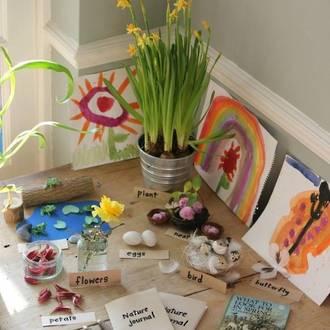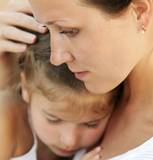Exploring Science & Nature
|
Exploring science and nature can be so much fun for little ones. When toddlers and preschoolers are engaged in learning about science and nature, they are also learning strategies for active exploration, thinking and reasoning and develop working theories for making sense of the natural, social, physical and material worlds.
|
You might also be interested in ...
Understanding disruptive behaviour
What constitutes ‘disruptive’ behaviour in young kids is very subjective. However, by looking deeper at your child’s behaviour it will help you understand more about why they act in a certain way. Behaviour that can appear ‘naughty’ or ‘disruptive’ to you, is often just your child’s way of communicating an unmet need as they try to figure out their way in the world.
Helping pre-schoolers cope with loss & grief
Sadly it’s a fact that many preschoolers will be exposed to some form of loss and grief in their early years. Whether it’s when a pet or someone close dies, if their parents separate or a good friend moves away. Toddlers and preschoolers don’t really understand how the world works, so how do we explain loss and grief to them?







Benefits of exploring science & nature
1. Helps preschool kids to make sense of the world
When preschool kids are engaged in learning about science and nature, they are also learning strategies for active exploration, thinking and reasoning and develop working theories for making sense of the natural, social, physical and material worlds around them.
2. Extends toddler and preschoolers thinking
Science and nature can help preschool children to discover how nature works, learn the correct names for animals and plants, care for the well-being of others and the environment, and to learn to question and investigate.
3. Promotes observation & explanation
You can support toddlers and preschoolers in their exploration by creating an environment that promotes observation, exploration and explanation, asking open-ended questions such as 'What do you think might happen?' or 'What do you see happening?'.
Encourage preschool kids to touch, taste, listen, see and smell the items, and get them to come up with their own explanations.
At home, you can provide resources for toddlers and preschoolers to touch, feel and smell by displaying a range of items on a low table, such as non-poisonous herbs and vegetables, stones and feathers.
You can enhance this experience by adding a magnifying glass, magnets and books on science and the natural world. You might also go on a nature treasure hunt to gather additional items for your science table.
Science & nature activities
Encourage your children to have fun learning about science and nature using some of these activities which are easy to do at home:
More Hot Topics for you to enjoy
Source: This article was written by Nurtured At Home – providing high quality learning environments in a safe and nurturing home.
Image source: theimaginationtree.com